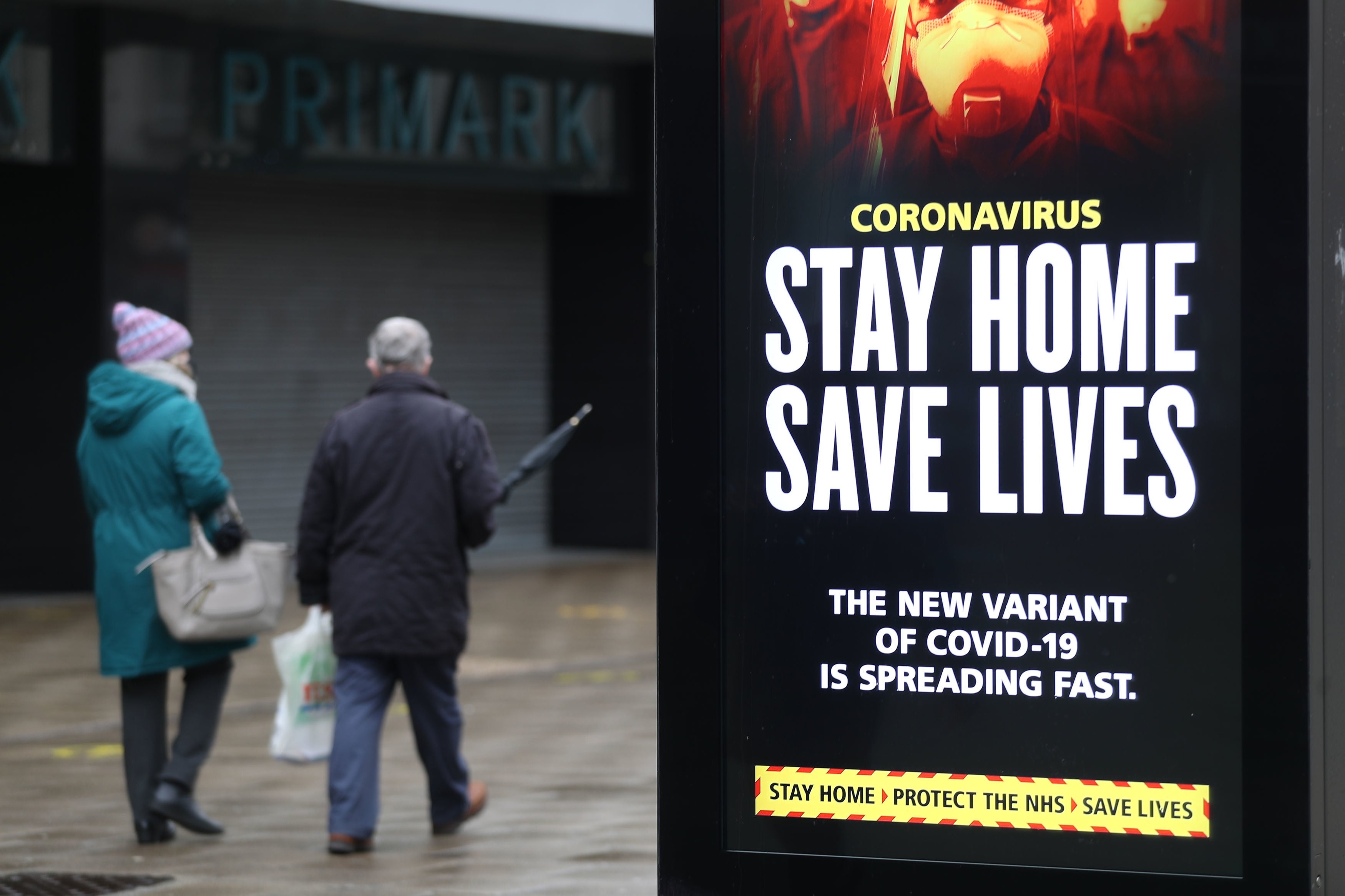Long Covid sufferers say they are not being ‘recognised’ by GPs and employers
‘I’m 38 and I wonder if I’ll ever be able to walk properly without crutches again’

Your support helps us to tell the story
From reproductive rights to climate change to Big Tech, The Independent is on the ground when the story is developing. Whether it's investigating the financials of Elon Musk's pro-Trump PAC or producing our latest documentary, 'The A Word', which shines a light on the American women fighting for reproductive rights, we know how important it is to parse out the facts from the messaging.
At such a critical moment in US history, we need reporters on the ground. Your donation allows us to keep sending journalists to speak to both sides of the story.
The Independent is trusted by Americans across the entire political spectrum. And unlike many other quality news outlets, we choose not to lock Americans out of our reporting and analysis with paywalls. We believe quality journalism should be available to everyone, paid for by those who can afford it.
Your support makes all the difference.Long Covid sufferers have pleaded for greater recognition from GPs, employers and the general public of the condition as they described agonising symptoms to MPs.
It comes after an analysis by the Office for National Statistics estimated that one in 10 people infected with coronavirus experience symptoms that last for three months or longer.
Appearing at the APPG on coronavirus, Dr Nathalie MacDermot, a clinical doctor sub-specialising in paediatric infectious diseases, said that while awareness had improved over the past few months it was “still not great” among the general public.
The 38-year-old told MPs that she displayed symptoms of the virus in May before developing nerve pain and a “slight weakness” in her legs.
In the summer months she experienced a “significant deterioration” and can now only walk 200 metres without some form of assistance, adding the condition had affected her bladder and bowel while also experiencing pain in her arms and has a weakness in her grip.
“I think we need to have much more awareness in primary care for people to be recognised when they first present to their GPs,” Ms MacDermott said.
She added: “We need better recognition by employers. I think there are a lot of people who have struggled with employment issues and support from their employers and recognising that this is a genuine condition.
“I think we need better recognition in the public, particularly the younger public who think they’re invincible. I’m 38 and I wonder if I’ll ever be able to walk properly without crutches again. Will this continue to get worse? Will I end up in a wheelchair?
“I think if people thought of Covid as not just a mild illness… people think mild or severe and if you’re old you’re going to get severe and end up in hospital and if you’re young get over it and you’ll be fine. I think they need to realise there’s an in-between there: yes, you may not die, but you may have long-term problems following it.”
Geraint Jones, an advanced pharmacist specialising in HIV, said he initially became unwell over Easter weekend having worked on Covid-positive wards. Despite feeling better after 10 days, he developed intense stomach pains in July and “brain fog”.
He added: “There’s very little awareness of long-Covid in the communities, the media, the public and this was kind of my motivation really to share my story with public professional media.
“I’m a 30-year-old man, I was literally crying on the floor because I didn’t know what to do, who to turn too, with no support,” he said.
“For me I’d hate to imagine there are other people out there who are going or will go through something very similar to myself. It’s just such a complex illness, it fluctuates, it changes with no real underlying pathology.
Dr Linn Jarte, a 33-year-old anaesthetist, also told MPs that even just taking a couple of steps would make her feel "absolutely horrendous" at the start of her experience with long Covid.
"I felt as if my whole body was just filled with lead, but at the same time I had this sort of painful burning situation, and it also made my heart rate just shoot through the roof," she said, adding that she had painful pins and needles.
Dr Jarte was affected by brain fog, describing it as a "thick cloud that just fills the brain", adding: "I just stopped being able to think."
Also appearing at the session Danny Altmann, a professor of immunology at Imperial College London, said his calculations suggested that the UK currently has around 300,000 cases of long Covid.
He stressed: “Everytime I go on TV or radio I’m faced with that devil’s advocate response of ‘well I’m not an old person, I’m not in care home, do I need to care about this, do I need a vaccine, do I socially distance? It doesn’t really concern me’.
“I think the kind of evidence we have on show here… means its a real game of Russian roulette because you don’t know whether you’re going to be one of the people who is better in two weeks or one of the people who is going to be in crutches, or a wheelchair, for months or years, or forever. How many of us want to take that risk?”




Join our commenting forum
Join thought-provoking conversations, follow other Independent readers and see their replies
Comments